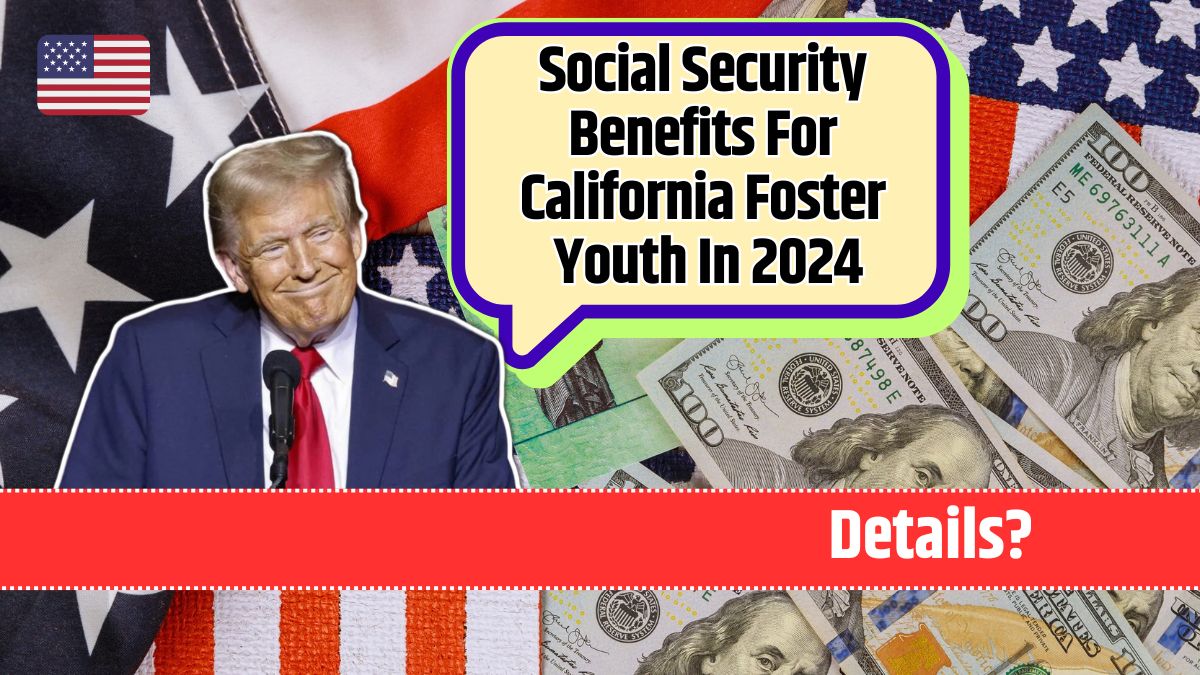California’s foster youth are gaining a critical financial safety net with the introduction of Assembly Bill 2906 (AB 2906). Signed into law in September 2024 by Governor Gavin Newsom, this legislation ensures that Social Security benefits for foster youth are conserved for their future, instead of being redirected by counties to offset foster care expenses.
This landmark move safeguards the financial rights of some of the state’s most vulnerable children.
Here’s a breakdown of what AB 2906 entails, how it impacts foster youth, and why it matters to caregivers and child welfare professionals.
Understanding the Issue
The Role of Social Security Benefits
Social Security benefits are designed to provide financial assistance to individuals in need, including children. Foster youth may qualify for:
- Survivor Benefits: For those who have lost one or both parents.
- Disability Benefits: For youth with qualifying physical or mental disabilities.
Historically, counties in California have redirected these benefits to cover foster care costs, leaving foster youth without funds when they age out of the system. This practice, while legal, has faced criticism for being unfair and detrimental to the long-term well-being of these children.
Challenges Foster Youth Face
Foster youth often face financial instability as they transition out of the system. Without access to their Social Security benefits, many struggle with housing, education, and basic living expenses. Advocates argue that these funds should belong to the youth, providing a foundation for a more secure adulthood.
Key Changes Under AB 2906
Notification Requirements
Under AB 2906, counties must notify foster youth and their legal representatives before applying for Social Security benefits on their behalf. This ensures transparency and allows youth to have a say in how their benefits are managed.
Protection of Funds
Counties are now prohibited from using foster youth’s Social Security benefits to cover foster care expenses. Instead, these funds must be conserved for the child’s future. Youth can access these funds when they transition out of foster care, helping them with housing, education, and other critical needs.
Youth Empowerment
By ensuring foster youth retain control of their Social Security benefits, AB 2906 empowers them to take charge of their financial futures. This change promotes autonomy and independence, key factors for success in adulthood.
Why This Matters
Protecting Social Security benefits for foster youth is more than just a financial issue—it’s about ensuring fairness and promoting long-term success.
- Financial Independence: With access to their benefits, foster youth can avoid the financial instability that often accompanies aging out of the system.
- Empowerment: Retaining control of these funds fosters a sense of autonomy, allowing youth to make decisions about their future.
- Better Outcomes: Studies show that financial support improves outcomes in education, employment, and housing stability for foster youth.
What Caregivers and Professionals Should Know
For Caregivers
Caregivers play a vital role in ensuring foster youth understand their rights and can access their benefits.
- Stay Informed: Learn how Social Security benefits are managed in your county.
- Advocate: Help foster youth understand their rights under AB 2906.
- Prepare for Transition: Support youth as they approach adulthood, ensuring they know how to access their conserved benefits.
For Child Welfare Professionals
Child welfare professionals must ensure compliance with AB 2906 and prioritize transparency in managing foster youth benefits.
- Communicate Clearly: Inform youth and their legal representatives about their benefits.
- Conserve Funds: Ensure benefits are managed responsibly and saved for the youth’s future.
Additional Support for Foster Youth
AB 2906 complements other programs supporting foster youth in California, such as:
- Fostering Connections to Success Act: Extends foster care support up to age 21.
- Kinship Guardianship Assistance Payment Program: Provides financial assistance to guardians of foster children.
Moving Forward
AB 2906 marks a significant step in protecting the financial rights of foster youth in California. By ensuring Social Security benefits are conserved for their intended recipients, this law provides a lifeline for youth as they transition into adulthood.
For caregivers and child welfare professionals, staying informed and proactive will ensure foster youth receive the support they deserve, paving the way for a brighter future.
















